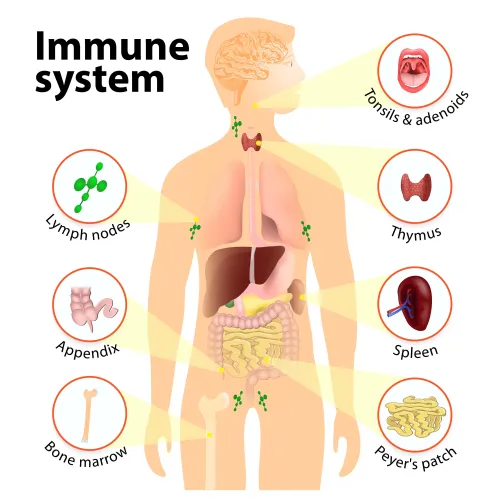HIV Screening Services Strengthened by Adding New HCPCS G0475

Hint: Repeat screenings are only billable within a year for pregnant women.
When your internal medicine specialist orders a screening of a patient for HIV infection, you will need to be aware of the new HCPCS code that has been introduced by CMS for this service. You will also need to be aware of who can receive this screening and be informed of provider and POS requirements. You should also be aware of the appropriate diagnosis codes that you will report to support claims for this screening.
Background: Prior to April 2013, the United States Preventive Services Task Force (USPSTF) only recommended screening for all adolescents and adults at increased risk for HIV infection, as well as all pregnant women. The USPSTF made no recommendation for or against routine HIV screening in adolescents and adults not at increased risk for HIV infection. Consistent with this recommendation, CMS only provided coverage for one annual voluntary HIV screening of Medicare beneficiaries at increased risk for HIV infection and three voluntary HIV screenings of pregnant Medicare beneficiaries at the following times: (1) when the diagnosis of pregnancy is known, (2) during the third trimester, and (3) at labor, if ordered by the woman’s clinician.
In 2013, the USPSTF updated its recommendations. The USPSTF now recommends screening for HIV infection in adolescents and adults aged 15 to 65 years. The USPSTF also recommends screening younger adolescents and older adults who are at increased risk as well as all pregnant women for HIV, including those who present in labor who are untested and whose HIV status is unknown. Consequently, CMS has changed its policy to cover routine screening of adolescents and adults aged between 15 to 65 years for HIV infection, irrespective of their risk of HIV infection. CMS continues to cover up to one screening a year for younger adolescents and older adults who were at increased risk of HIV infection and a maximum of three voluntary HIV screenings of pregnant Medicare beneficiaries. Effective with dates of service on or after April 13, 2015, CMS introduced a new HCPCS code, G0475 (HIV antigen/antibody, combination assay, screening) that you can report for HIV screening services provided to a patient.
Coverage Criteria for G0475
CMS will now cover the screening with the appropriate FDA approved lab tests and point of care tests when it’s ordered by the beneficiary’s physician or practitioner within the context of a healthcare setting and performed by an eligible Medicare provider.
You can report G0475 for patients who undergo HIV screening and who meet the specifications detailed below:
Men and women who are having unprotected vaginal or anal intercourse
“Regarding individuals who have been evaluated by a physician and declared to be at risk, CMS states that the physician identifies and determines the ‘increased risk’ for HIV infection based, at least in part, on the patient’s history as part of a complete medical history, typically part of an annual wellness visit,” notes a prominent coding specialist. “CMS also states that the physician should consider this determination in the development of a comprehensive prevention plan and that the medical recommendation should be a reflection of the service provided.”
Other Coverage Guidelines for G0475
As mentioned above, CMS will provide coverage for screening of HIV infection that has to be reported using the HCPCS code, G0475. For individuals aged between 15 to 65 years andfor individuals aged below 15 years or older than 65 years who are at increased risk of HIV infection, CMS will provide coverage for a maximum of one annual voluntary screening.
As noted, for pregnant women, G0475 will be provided coverage for a maximum of three voluntary screenings during the pregnancy. These screenings will receive coverage at the following points in the pregnancy:
If claims exceed the maximum number of screenings that are allowed per year, then the claim will be denied.
Repeat screening: CMS will cover repeat screenings for persons aged between 15 to 65 years and for persons aged below 15 or older than 65 with increased risk annually. Annual is defined as “11 full months must pass following the month of the last negative HIV screening.”
Provider and POS requirements: Make sure that the documentation that you provide reflects information that a qualified provider performs the screening. The screening should be ordered by the beneficiary’s physician or practitioner within the context of a healthcare setting.
Also, note that CMS limits coverage and payment to certain sites of service. According to the MLMatters article MM9403, CMS only pays for the service if it is performed in one of the following places of service:
Include Appropriate Diagnosis Codes to Support Coverage for G0475
When reporting G0475 for screening a patient for HIV infection, you will have to report appropriate diagnosis codes to help support the necessity of screening and to allow coverage to obtain reimbursement for the screening.
When the screening for HIV is performed for a patient aged between 15 to 65 without regard to the risk of HIV, your claim for G0475 should be reported with the primary diagnosis code as Z11.4 (Encounter for screening for human immunodeficiency virus [HIV]). For individuals aged below 15 or older than 65 who are at increased risk of HIV, your claim for G0475 should be supported with the same primary diagnosis code, Z11.4.
However, for individuals aged below 15 or older than 65 who are at increased risk of HIV, you should report an additional diagnosis code that denotes the high risk of HIV infection. The secondary diagnosis codes that denote increased risk of HIV include:
For pregnant women, when you are reporting G0475 for a HIV screening, you have to report Z11.4 as the primary diagnosis code. You will have to report an additional secondary diagnosis code, such as Z34.0- (Encounter for supervision of normal first pregnancy…), Z34.8- (Encounter for supervision of other normal pregnancy…), Z34.9- (Encounter for supervision of normal pregnancy, unspecified…) or O09.9- (Supervision of high risk pregnancy, unspecified…).
Resources:For more information on screening for HIV, see the MLMatters article at https://www.cms.gov/Outreach-and-Education/Medicare-Learning-Network-MLN/MLNMattersArticles/Downloads/MM9403.pdf.
Injection drug users (past and present)
Individuals who have or have had partners who are bisexual, HIV positive or are injection drug users
Individuals who have had blood transfusions between 1978 and 1985
Individuals with new sexual partners
Individuals who have other sexually transmitted infections (STIs) or have requested testing for STIs
Individuals who have asked for an HIV test without being under any risk for HIV infection
Individuals who have been evaluated by a physician and declared to be at an increased risk of HIV infection




